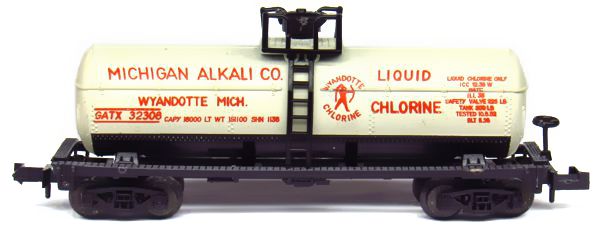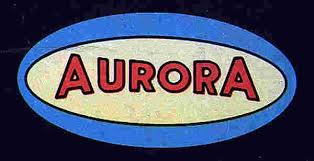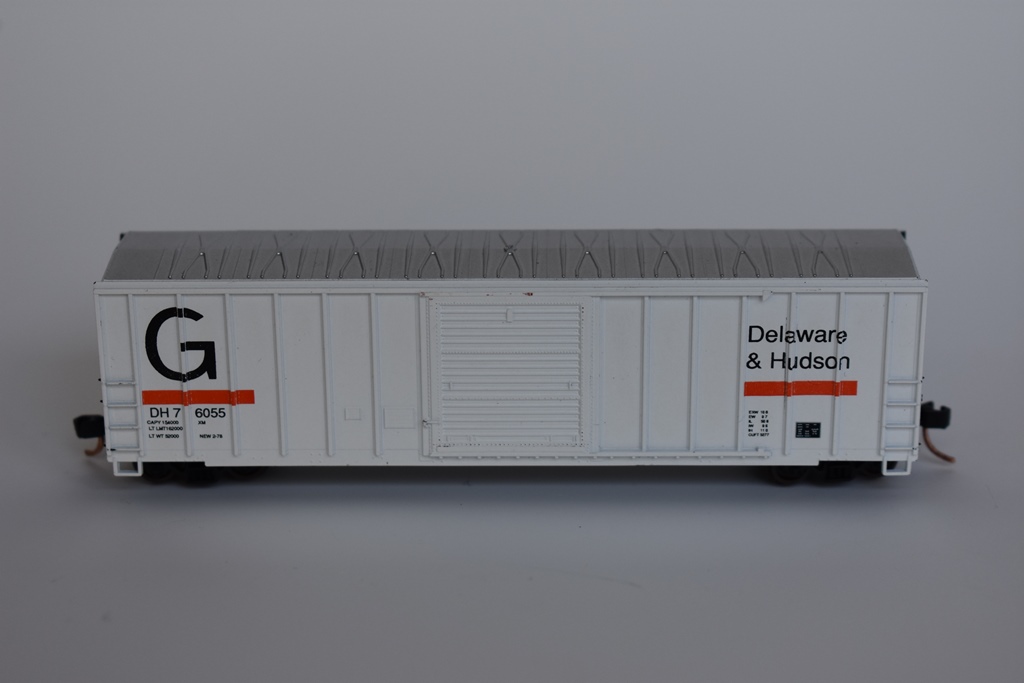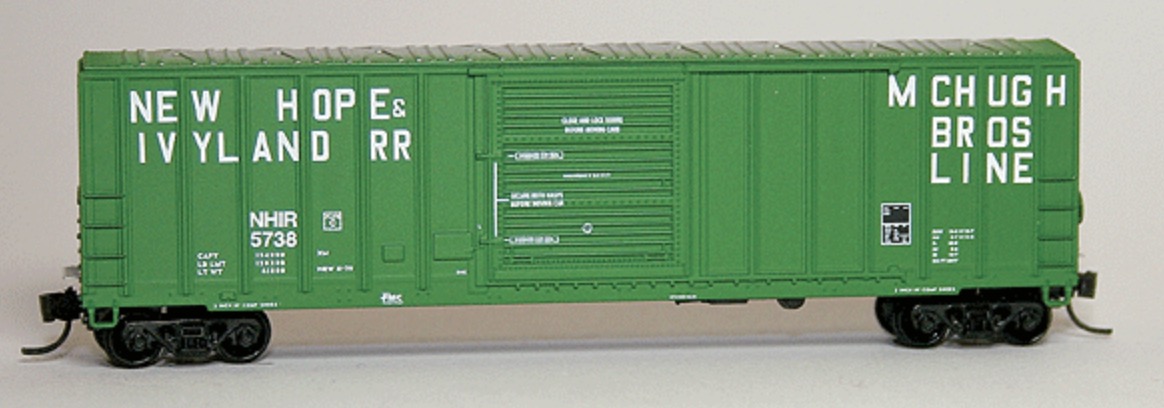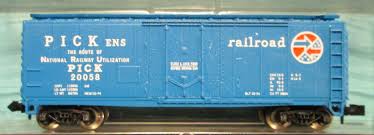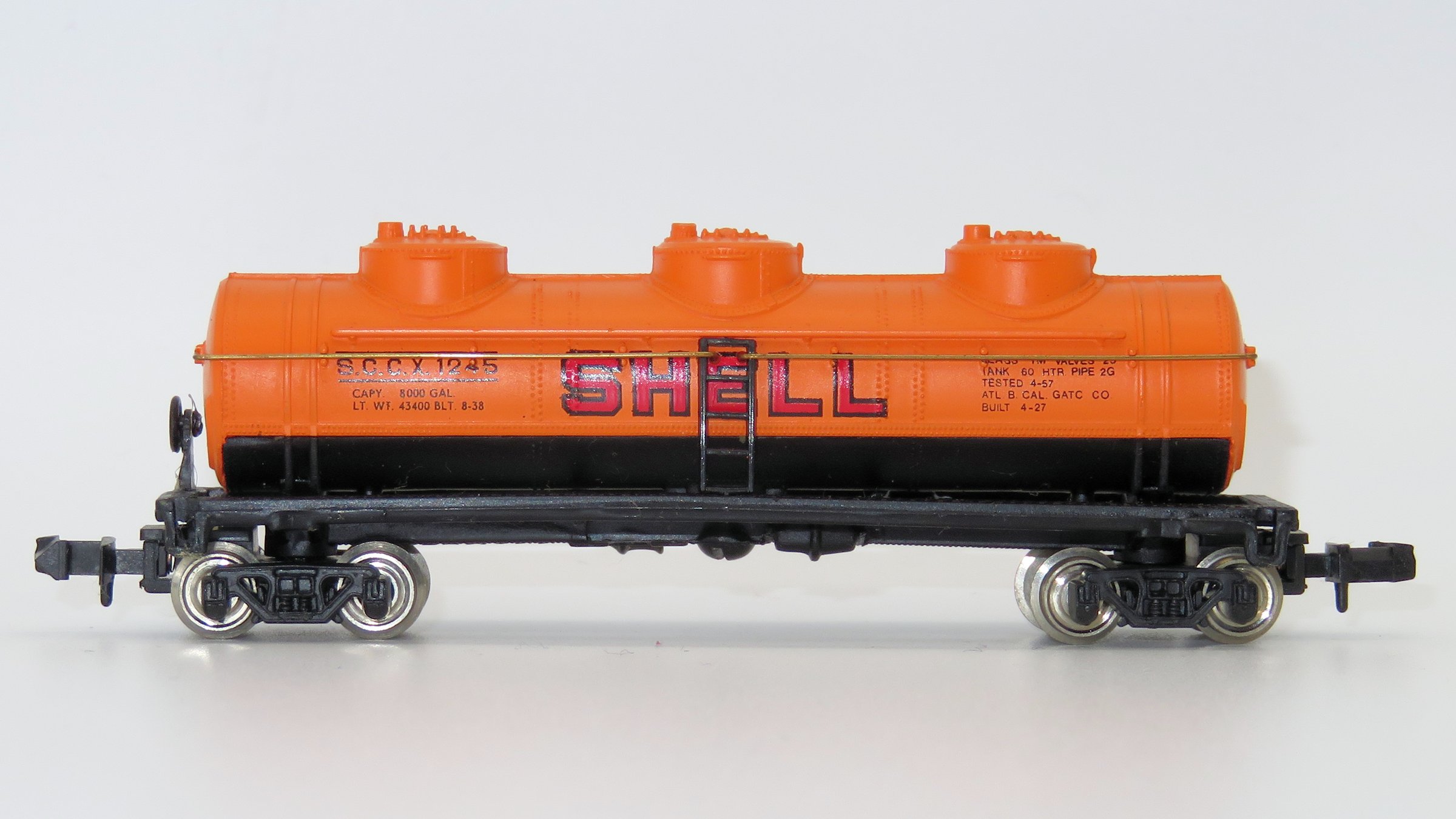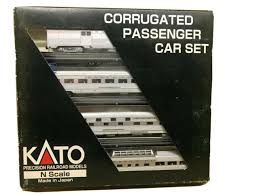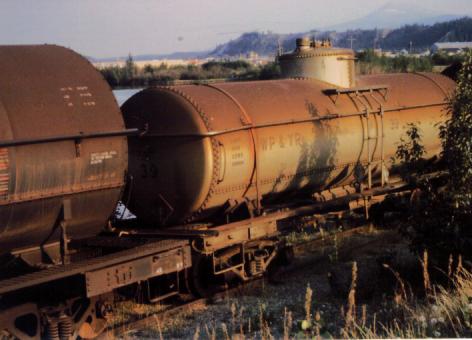Model Information: There are three similar but different 40 foot single dome tank cars in the 1960s and 1970s. One version was made for Atlas. One version was made for Aurora, Minitrix and Model Power, and a third version for AHM and JC Timmer. This body style represents the 2nd type (Aurora, Minitrix and Model Power).
Prototype History: Single Dome tank cars are a railroad staple. They have been around since the first half of the 20th century. This length car can handle about 10,000 gallons. These railcars carry a wide array of commodities, including liquid fertilizers, chemicals, fuel oils and asphalt, and food-grade oils. Tank cars can be pressurized or non-pressurized, insulated or non-insulated. Single dome cars carry only a single commodity at once. Food-service tank cars may be lined with stainless steel, glass, or plastic. Tank cars carrying dangerous goods are generally made of different types of steel, depending on the intended cargo and operating pressure. They may also be lined with rubber or coated with specialized coatings for tank protection or product purity purpose. The tank heads are also stronger to prevent ruptures during accidents.
One common version is the ACF Type 27 jacketed tank car with expansion dome which was in common use by many railroads and oil companies.
One common version is the ACF Type 27 jacketed tank car with expansion dome which was in common use by many railroads and oil companies.
Road Name History: 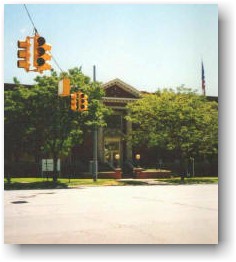 On October 17, 1890, Captain John Baptiste Ford (1811-1903) purchased this property along the Detroit River. He established the Michigan Alkali Company here in 1893. Ford had financial interests in several glass companies, and he chose the site for its proximity to resources needed to produce soda ash, a primary ingredient in the manufacture of glass. The deep strata of pure salt beneath the site was most important. Water from the Detroit River was used to extract the salt in solution form. The salt was used with limestone to produce a variety of sodium-based industrial and consumer products. The limestone was shipped from company owned quarries near Alpena. In the early years, Michigan Alkali's products included soda ash, baking soda and lye.
On October 17, 1890, Captain John Baptiste Ford (1811-1903) purchased this property along the Detroit River. He established the Michigan Alkali Company here in 1893. Ford had financial interests in several glass companies, and he chose the site for its proximity to resources needed to produce soda ash, a primary ingredient in the manufacture of glass. The deep strata of pure salt beneath the site was most important. Water from the Detroit River was used to extract the salt in solution form. The salt was used with limestone to produce a variety of sodium-based industrial and consumer products. The limestone was shipped from company owned quarries near Alpena. In the early years, Michigan Alkali's products included soda ash, baking soda and lye.
Since incorporating as the Michigan Alkali Company in 1893, these chemical works have played an integral role in the development of Wyandotte. The founder of the company, John Baptiste Ford (1811 - 1903), believed in corporate benevolance and generous donations were made to the city. The corporation continued this practice after Ford's death. One contribution was the first Wyandotte General Hospital, erected in 1926. In 1943, Michigan Alkali consolidated with the J.B. Ford Company Glassworks to become the Wyandotte Chemical Corporation. In 1969 it became part of the BASF Group of companies, headquartered in Germany. BASF continues to use this Georgian Revival administration building, designed by the Detroit firm of Chittenden and Kotting and completed in 1907.

Since incorporating as the Michigan Alkali Company in 1893, these chemical works have played an integral role in the development of Wyandotte. The founder of the company, John Baptiste Ford (1811 - 1903), believed in corporate benevolance and generous donations were made to the city. The corporation continued this practice after Ford's death. One contribution was the first Wyandotte General Hospital, erected in 1926. In 1943, Michigan Alkali consolidated with the J.B. Ford Company Glassworks to become the Wyandotte Chemical Corporation. In 1969 it became part of the BASF Group of companies, headquartered in Germany. BASF continues to use this Georgian Revival administration building, designed by the Detroit firm of Chittenden and Kotting and completed in 1907.
Brand/Importer Information: In 1967, Aurora Plastics Corporation started importing the Minitrix N Scale product line. These trains were marketed as Postage Stamp Trains. It was a bold entry into what would become a very active market in the new N-Scale model train market. The basic starter set took advantage of N-Scale’s small size by packaging everything necessary for a small model railroad in a book-like box. The larger starter sets were packaged in more conventional boxes. Aurora went out of business in 1977.
The Body styles of this product line were made in Austria by Roco, imported into the United States by Minitrix and then rebranded by Aurora. Some of the exact same molds were also produced by Roco for Atlas who branded them using their own name.
A lot of information can be found on All about Aurora Postage Stamp Trains web site by David K. Smith.
The Body styles of this product line were made in Austria by Roco, imported into the United States by Minitrix and then rebranded by Aurora. Some of the exact same molds were also produced by Roco for Atlas who branded them using their own name.
A lot of information can be found on All about Aurora Postage Stamp Trains web site by David K. Smith.
Manufacturer Information: 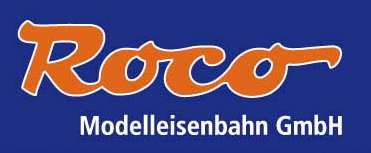 The company was founded in 1960 by Ing. Heinz Rössler and started with a plastic Minitanks series of military vehicles. After export to the USA became successful, the model line was expanded with model trains in HO scale and the smaller N scale. TT scale was also subsequently added to the product line. The model rail product line covers many European countries including Germany, Belgium, Luxembourg, France, Spain, Austria, Italy, Switzerland, Sweden and the Netherlands, and also the USA.
The company was founded in 1960 by Ing. Heinz Rössler and started with a plastic Minitanks series of military vehicles. After export to the USA became successful, the model line was expanded with model trains in HO scale and the smaller N scale. TT scale was also subsequently added to the product line. The model rail product line covers many European countries including Germany, Belgium, Luxembourg, France, Spain, Austria, Italy, Switzerland, Sweden and the Netherlands, and also the USA.
On July 15, 2005 ROCO Modellspielwaren GmbH was declared bankrupt. From July 25 the company continues as Modelleisenbahn GmbH, but still uses the Roco brand and associated logo. On October 1, 2007, distribution of the 'Minitank' product series was assigned to the German model car manufacturer Herpa.
Since February 2008 Modelleisenbahn also owns Fleischmann, which like Roco had gone bankrupt. The two companies continue as separate brands under Modelleisenbahn GmbH, while benefiting from economies of scale through joined development projects, marketing and procurement.
From Wikipedia

On July 15, 2005 ROCO Modellspielwaren GmbH was declared bankrupt. From July 25 the company continues as Modelleisenbahn GmbH, but still uses the Roco brand and associated logo. On October 1, 2007, distribution of the 'Minitank' product series was assigned to the German model car manufacturer Herpa.
Since February 2008 Modelleisenbahn also owns Fleischmann, which like Roco had gone bankrupt. The two companies continue as separate brands under Modelleisenbahn GmbH, while benefiting from economies of scale through joined development projects, marketing and procurement.
From Wikipedia
Item created by: gdm on 2017-03-19 16:45:03. Last edited by CNW400 on 2020-05-12 15:49:54
If you see errors or missing data in this entry, please feel free to log in and edit it. Anyone with a Gmail account can log in instantly.
If you see errors or missing data in this entry, please feel free to log in and edit it. Anyone with a Gmail account can log in instantly.


